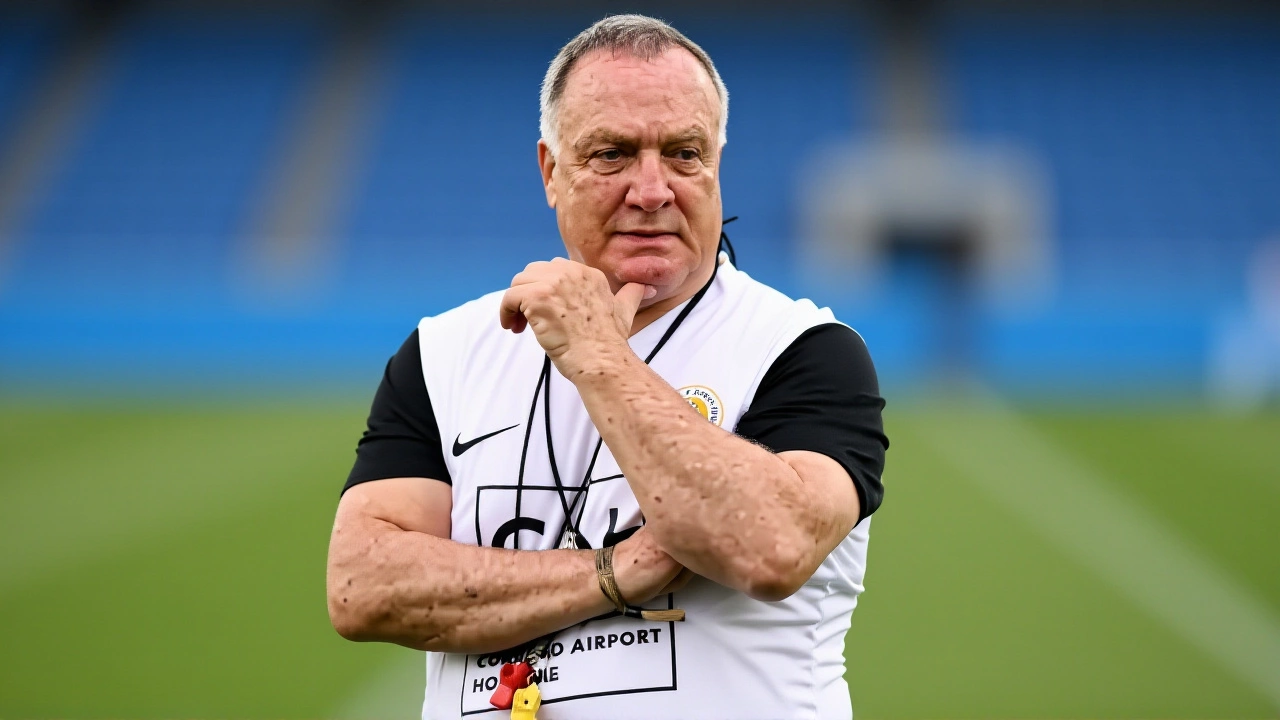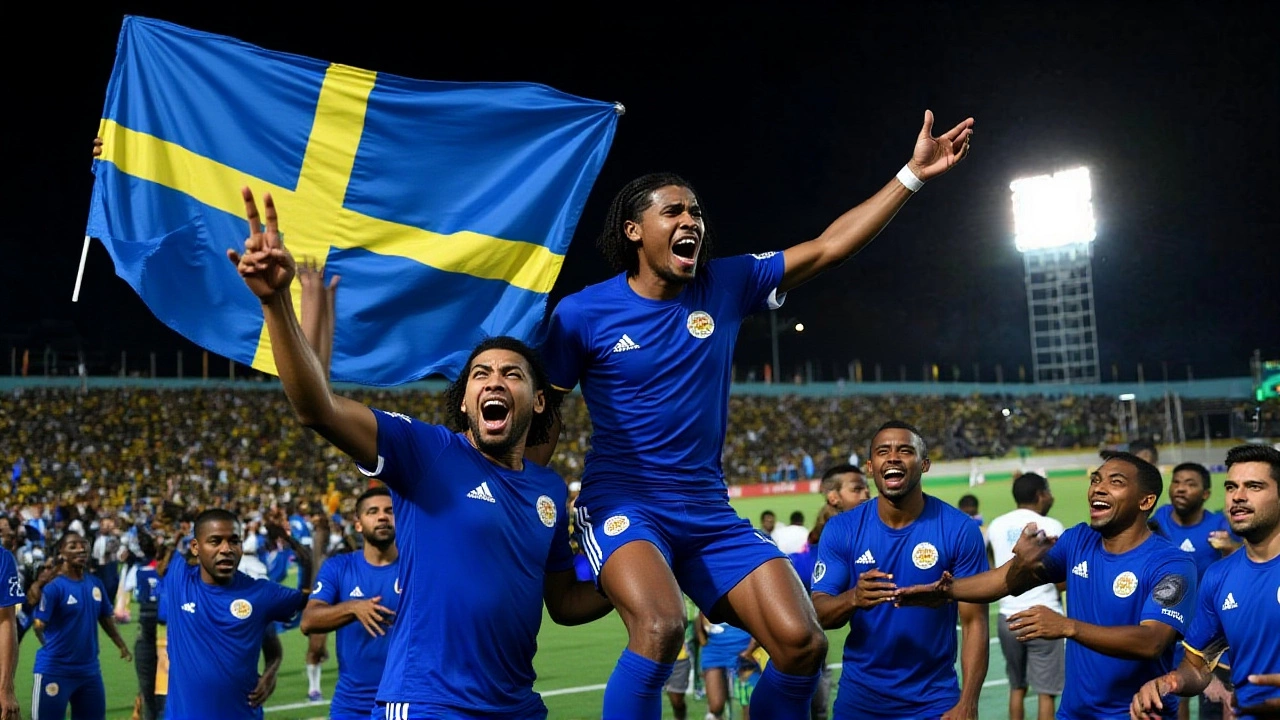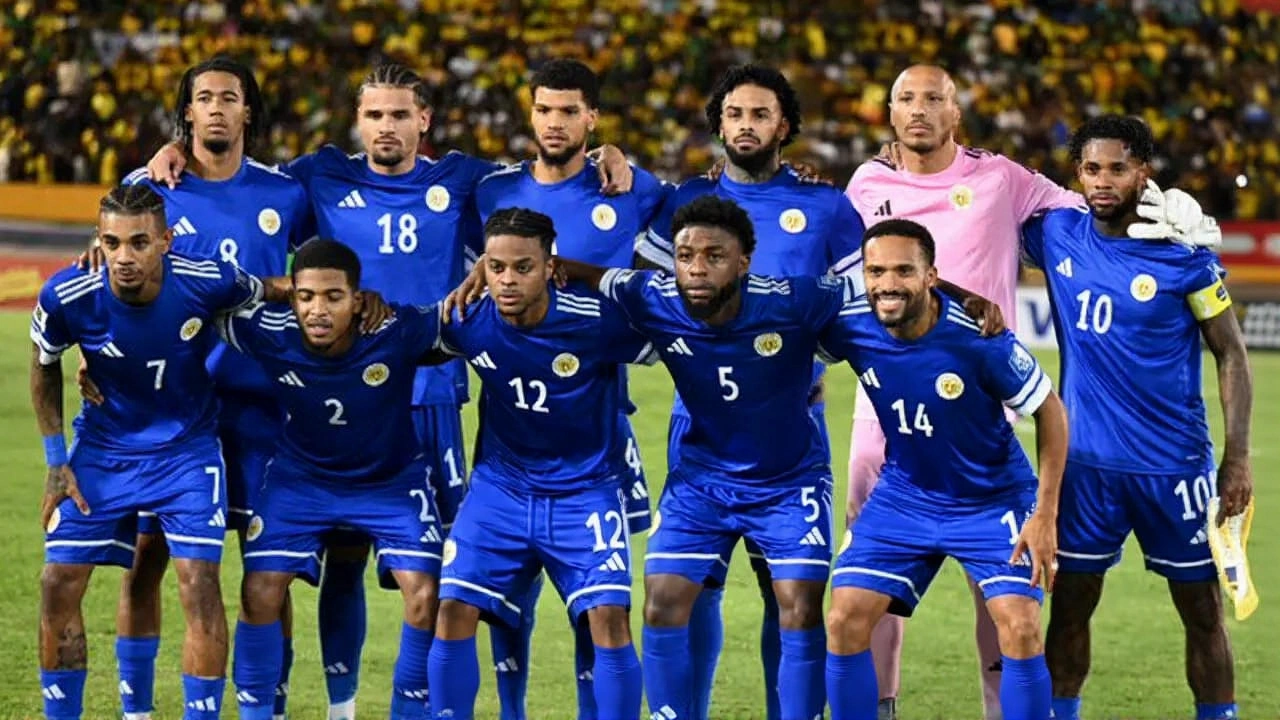The FIFA World Cup has a new underdog — and it’s not just any underdog. On November 19, 2025, the Curacao national football team stunned the football world by defeating Jamaica in a nail-biting CONCACAF qualifier, securing their first-ever spot in the 2026 FIFA World CupMexico, United States, and Canada. With a population of just 160,000, Curacao — a tiny island nation in the southern Caribbean — has officially become the smallest country in history to reach the tournament’s final stage. The moment was captured in a raw, emotional video by Agence France-Presse, showing players and staff overcome with disbelief and joy. "We did it. Finally, we did it," said one unnamed player, his voice cracking. "I didn’t expect this because I thought Jamaica was a strong team."
How a Tiny Island Made Football History
Curacao isn’t just small — it’s microscopic in global football terms. While traditional powerhouses like Brazil and Germany field squads of 26 professionals from top European leagues, Curacao’s roster includes players from the Dutch second division, local amateur clubs, and even a few who work day jobs outside football. Their home stadium, the Curaçao Stadion in Willemstad, holds fewer than 7,000 fans. Yet, against all odds, they outplayed Jamaica — a team that reached the 2015 CONCACAF Gold Cup final and has produced stars like Alphonso Davies’ early mentor, Kemar Lawrence. The qualification came down to a 2-1 win in Kingston, sealed by a 78th-minute goal from midfielder Shanique van der Schyff, a 24-year-old who plays for a club in the Netherlands’ Tweede Divisie. The victory wasn’t just tactical — it was emotional. Players collapsed to their knees as the final whistle blew. Fans in Willemstad flooded the streets, honking horns and waving the red, white, and blue flag. "This isn’t just about football," said local schoolteacher Maria Hooft, watching the match from a crowded bar. "It’s about being seen. We’ve been invisible for too long."What Makes Curacao Different
Curacao’s football identity is deeply tied to its colonial past. As a constituent country within the Kingdom of the Netherlands, its players have long had access to Dutch academies — a pipeline that has produced stars like Memphis Depay and Georginio Wijnaldum. But while those players chose to represent the Netherlands, Curacao’s national team has quietly built its own identity. Over the past decade, the Curacao Football Federation has invested in youth academies, scouting networks across the Dutch Antilles, and even hired former Dutch national team coach Dick Advocaat as a consultant. The result? A team that plays with grit, speed, and a fearless attacking style. Their 2025 qualifying campaign saw them win three of four matches, draw one, and lose only to the United States — a 3-1 defeat that still felt like a moral victory. They finished second in Group B, behind only the U.S., and then defeated Trinidad and Tobago in a playoff to reach the final round.
Why This Matters Beyond the Pitch
The 2026 FIFA World Cup is the first to feature 48 teams — a move that opened doors for smaller nations. But Curacao’s qualification isn’t just a statistical footnote. It’s symbolic. For decades, football’s global stage has been dominated by countries with populations over 10 million. Curacao, with its tiny landmass and limited resources, proves that heart can outweigh scale. The team’s post-match declaration — "We are small, but we are big at heart" — has already gone viral across Caribbean social media. In Haiti, Trinidad, and the Dominican Republic, fans are calling it "the people’s World Cup." Even FIFA acknowledged the moment in a tweet: "History made. Curacao, welcome to the world stage."What’s Next for Curacao?
The group stage draw for the 2026 FIFA World Cup takes place in December 2025 in Los Angeles. Curacao will be placed in Pot 4 — the lowest seeding — meaning they’ll likely face heavyweights like Brazil, Spain, or Germany. But don’t count them out. In 2018, Iceland (population 340,000) held Argentina to a 1-1 draw. Curacao’s players have already said they’re not here to make up numbers. "We’ll train harder than anyone," said assistant coach Wesley Sneijder, a former Netherlands international who was born in Rotterdam but whose mother is from Curacao. "They’ve got something no one else does — a whole island believing in them. That’s a weapon." The team’s first training camp for the World Cup begins in January 2026 in Eindhoven, Netherlands, where they’ll use facilities once used by the Dutch national team. Sponsorships are pouring in — from Dutch banks, Caribbean telecoms, and even a rum distillery in Bonaire. A documentary crew from HBO is already on the ground.
The Legacy of a Tiny Nation
This isn’t just about one tournament. It’s about rewriting the rules. For too long, football’s hierarchy assumed that only large nations could compete at the highest level. Curacao shattered that myth. Their journey echoes the 1990s rise of Jamaica — then another tiny, overlooked team — and the 2010 breakthrough of Slovenia. But Curacao’s story is more intimate. It’s not about money or infrastructure. It’s about pride. When the final whistle blows in the MetLife Stadium on July 19, 2026, whether Curacao wins or loses, they’ve already won something bigger. They’ve shown the world that greatness doesn’t need a big population. Just a big heart.Frequently Asked Questions
How did Curacao manage to qualify despite having such a small population?
Curacao’s success stems from decades of investment in youth development through Dutch academies and local grassroots programs. The island’s football federation prioritized technical training over physical size, producing agile, tactically intelligent players. Many squad members play in the Netherlands’ lower divisions, gaining professional experience without the pressure of top-tier European leagues. Their 2025 campaign featured disciplined defense and quick counterattacks, exploiting opponents’ overconfidence.
Is Curacao considered a sovereign nation in international football?
Yes. Though politically part of the Kingdom of the Netherlands, Curacao is a separate member of FIFA and CONCACAF, with its own national team, federation, and flag. This arrangement dates back to 2010, when the Netherlands Antilles dissolved. Curacao, Aruba, and Sint Maarten each gained independent football status — a rare case where political fragmentation led to sporting autonomy.
Who are Curacao’s biggest rivals in CONCACAF?
Historically, Curacao’s fiercest rivals are Trinidad and Tobago and Haiti, both fellow Caribbean nations with similar population sizes and footballing challenges. Jamaica remains a key rival due to their stronger recent performances and higher FIFA ranking. Curacao has never beaten Jamaica in a competitive match until November 2025 — making their 2-1 win in Kingston a historic turning point.
What’s the significance of Curacao’s "small but big at heart" slogan?
The phrase captures the emotional core of the team’s journey. It’s a direct rebuttal to the notion that only large, wealthy nations can compete on football’s biggest stage. For Caribbean communities long marginalized in global sports, Curacao’s qualification represents more than a win — it’s validation. The slogan has been printed on T-shirts across the region and is now used by youth academies as a motivational mantra.
Will Curacao’s success inspire other small nations?
Absolutely. The 2026 World Cup’s expanded format already gave hope to nations like San Marino and Gibraltar, but Curacao’s tangible success proves it’s possible. The FIFA has reportedly received inquiries from several Pacific Island nations seeking guidance on replicating Curacao’s model — particularly their focus on diaspora talent and low-cost, high-impact youth programs.
What’s the next milestone for Curacao’s football program?
Beyond the World Cup, the Curacao Football Federation aims to build a permanent national training center by 2028, funded partly by World Cup broadcast revenue shares. They also plan to launch a professional domestic league — the first of its kind on the island — to retain top local talent and reduce reliance on Dutch clubs. Success in 2026 could accelerate this timeline dramatically.
